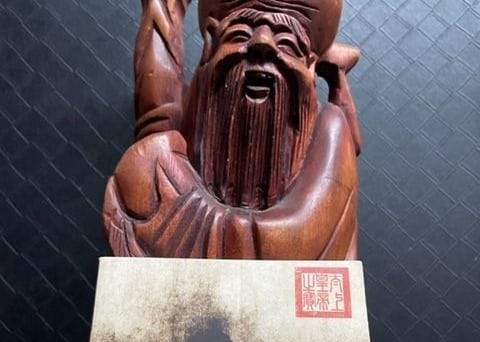No Woom for Wu? You Have Pwoblems
Tao Teh Ching, Chapter 3

We Work Best When We Work without Aim
Edward Slingerland wrote an entire book about “trying not to try.”
We know the phenomenon: We work at our highest levels when we aren't worried about working at our highest levels. We just do, focused on nothing, except the task or chore immediately in front of us.
Some call it the "zone." It's loosely related to the mind state known as "flow." It's "effortless effort."
Slingerland explored the paradox further in Drunk: How We Sipped, Danced, and Stumbled Our Way to Civilization.
The thrust of the book is that our prefrontal cortex does our reasoning, thinking, and analysis. When it swells, like it does when we're concentrating on making a living, it stifles the creative and fun part of the brain. In order to increase creativity and fun, we need to shrink it. Alcohol (as well as psychedelics and other things) is a tool that allows us to shrink it.
When it shrinks, we are more inclined to try without trying. We just focus on the thing in front of us, without thinking about how the effort affects us.
"Working without Aim": Wu-Wei. Non-Ado
In my daily life there are no other chores than those that happen to fall into my hands. Nothing I choose, nothing I reject. Nowhere is there ado, nowhere a slip. P’ang Yun, disciple of the great Zen patriarch Ma-tsu Tao-I (709-788).
Slingerland's "trying not to try" is his translation of the Taoist idea of wu-wei.
I think his phrase tries too much. The phrase tries to provide a degree of precision, plus it emphasizes "trying" too much.
I prefer John Wu's translation of wu-wei: non-ado. It's more cryptic, which accords with the Tao's unnameability. It has the "detached" feel that permeates the Tao tradition.
The phrase "non-ado" also makes it clear that "wu" means “non” or “no,” as in two other Taoist (non-)concepts:
Wu-shih: non-concern,
Wu-chiu: non-seeking.
We should, says the Sage, concern ourselves with things without being concerned. We should seek without seeking. We should work without explicit aim.
The Left Hemisphere Can't Deal with Wu-Wei
The left hemisphere recoils at all this paradox. The left hemisphere is a paradox moron.
It works from concepts and language that create rational systems and conclusions that allow individuals to cut through life with a measure of efficiency. If there's another truth that conflicts with its rationalistic conclusions, it crumples in denial or frustration, often just ignoring it (putting it on the shelf) and plowing forward with its efforts.
The left hemisphere is the hemisphere of trying to try: placing a premium on trying, taking pride in trying, and celebrating explicit effort and success . . . attaining earthly aims, which is the role of the left hemisphere.
It has no time for paradox, much less mystery or uncertainty. It's got things to do!
Invite the Wu Family into Your Life. It'll Irritate the Left Hemisphere
Non-ado appears early in the Tao Teh Ching. The Sage, Lao Tze tells us in chapter 2, manages his affairs without ado. Chapter 3 counsels every person to do the same:
"Practice Non-Ado, and everything will be in order."
It's advice that appeals exclusively to the right hemisphere, which appreciates that there are truths that can't be explained, reasoned to, or even spoken.
The Wu family is one group of such truths. We've all experienced the goodness of trying without trying, being concerned without concern (in the Christian tradition, referred to as "detachment"), and seeking without seeking.
Just doing, in other words, without thinking about the earthly successes or aims or goals that might arise from the doing.
We all oughtta invite the Wu family over for dinner occasionally, frequently . . . every moment of the day. Your left hemisphere will recoil. It might even refuse to come to dinner anymore.
And that's alright. Let it starve. It'll succumb eventually and become the proper servant of the right hemisphere, which is exactly what we want.


